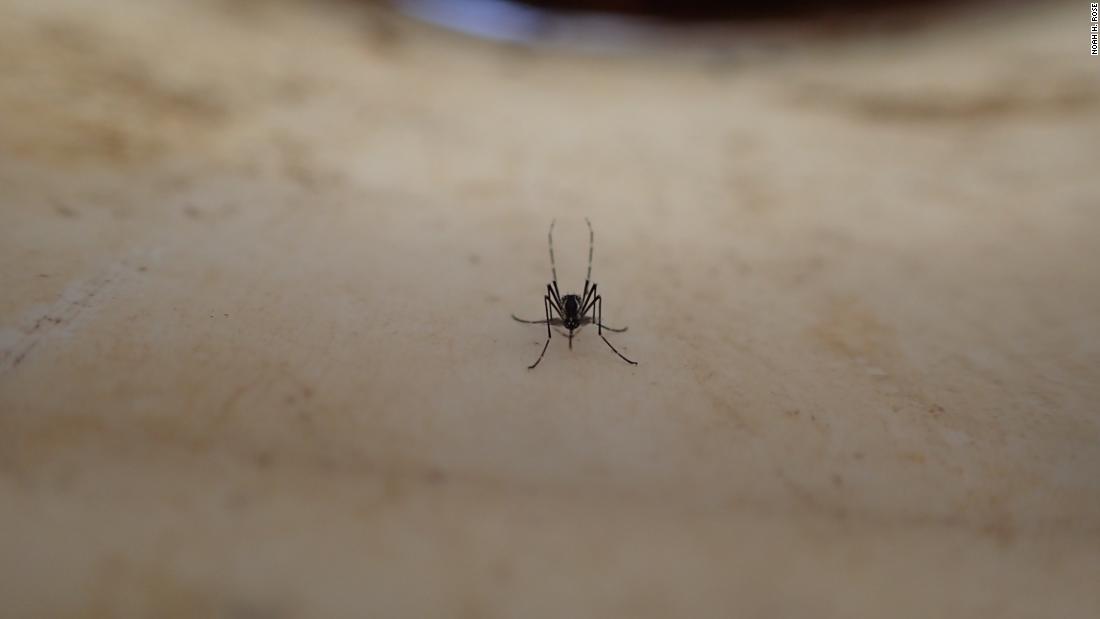
There are around 3,500 mosquito species worldwide, but only a few are responsible for spreading infectious diseases to humans.
Scientists studied mosquitoes in sub-Saharan Africa and discovered that mosquitoes actually have powerful palates.
“There is great diversity in mosquito preferences. Some like to bite humans and others don’t like to bite humans,” said co-author Noah Rose, a postdoctoral researcher at Princeton University in New Jersey.
“At first we thought that mosquitoes that lived near people would just like to bite people and that those who lived in the woods would not like to bite humans,” Rose said. “We were very surprised that that was not the case.”
While mosquitoes living near dense cities like Kumasi, Ghana, or Ouagadougou, Burkina Faso, showed a greater willingness to bite humans, researchers found that life in the city alone did not explain the evolution of mosquitoes. In fact, mosquitoes that live in big cities prefer to bite animals rather than humans.
That’s where the second factor comes in, dry weather. In areas with severe dry seasons, such as the Sahel region of Africa, which stretches from Senegal to Sudan and Eritrea, mosquitoes evolved to have a strong preference for humans.
“Mosquitoes depend on water containers for their larvae,” Rose told CNN. “So in places with an intense long dry season, mosquitoes become very dependent on humans who store water.”
The evolution of mosquitoes to bite humans is a by-product of their dependence on breeding in areas close to human life in the city. That means urbanization in the coming decades could lead to more human biting mosquitoes in the future.
Urbanization to cause a greater change in mosquitoes
New research predicts that this rapid urbanization will drive mosquito evolution, causing a shift toward human bites. in many large cities by 2050.
“We should be observing these mosquitoes,” Rose said, noting that the future of mosquito adaptations is still uncertain.
“We really don’t know what will happen when urbanization in sub-Saharan Africa goes beyond what we see today. But we know that something will happen and we believe it will be a change to bite more human hosts.”
That means the way mosquitoes transmit the disease could also change.
But in the short term, the researchers said that climate change is not expected to lead to major changes in dry season dynamics that impact mosquito behavior.
Mosquitoes can thrive in different habitats.
It took the international team of scientists more than three years to conduct the research and collect mosquito egg samples from a wide range of habitats at 27 locations in Africa.
“I was surprised that the immediate habitat did not have much of an effect: mosquitoes in forests and nearby towns performed similarly,” Rose said.
“We thought that perhaps moving to human landscapes would be a key attraction factor for human hosts. But it seems that mosquitoes fly from one place to another too easily between these habitats for their behavior to diverge in many cases.”
Mosquitoes can thrive in a “mosaic of habitats” within the same region, making preventing mosquito-borne diseases an even greater challenge, he added.
“Even if you get rid of the mosquitoes that bite humans in one place, there is a great diversity of mosquitoes in one habitat. They are really good at solving problems and surviving in different habitats,” Rose said.
The World Health Organization has said that mosquito control can effectively reduce the transmission of vector-borne diseases such as Zika and yellow fever, but “mosquito control is complex, costly, and mitigated by the spread of resistance to insecticides. “
Protect yourself from mosquitoes
For people living in or traveling to areas where mosquito-borne diseases prevail, there are a few things you can do to prevent mosquito bites, according to the U.S. Centers for Disease Control, The National Institutes of Health. and the WHO:
- Use insect repellent that has one of the following active ingredients: DEET, picaridin (known internationally as KBR 3023 or icaridin), IR3535, lemon eucalyptus oil, para-methanediol, or 2-undecanone. In the United States, be sure to use insect repellent approved by the Environmental Protection Agency. It is important to reapply bug spray every three to four hours.
- Wear clothing that covers your arms, legs, and other exposed skin. You can also wear hats with mosquito nets to protect your neck and face. And while it may not be in style, tucking pants into socks can also help.
- Treat clothing and equipment with permethrin, which helps repel mosquitoes and will protect you even after multiple washes. But don’t use permethrin products directly on your skin.
- Keep mosquitoes outside by putting screens on your windows and doors, or by keeping windows closed and using air conditioning, if possible.
- Sleep under a mosquito net If it is difficult to keep mosquitoes out of your home or hotel or if you are traveling to an area with mosquitoes that transmit disease.
- Workplaces in areas with mosquitoes that bite humans can reduce the risk to employees by eliminating standing water; remove tires, buckets and other items that collect water; and covering and storing outdoor equipment.
.